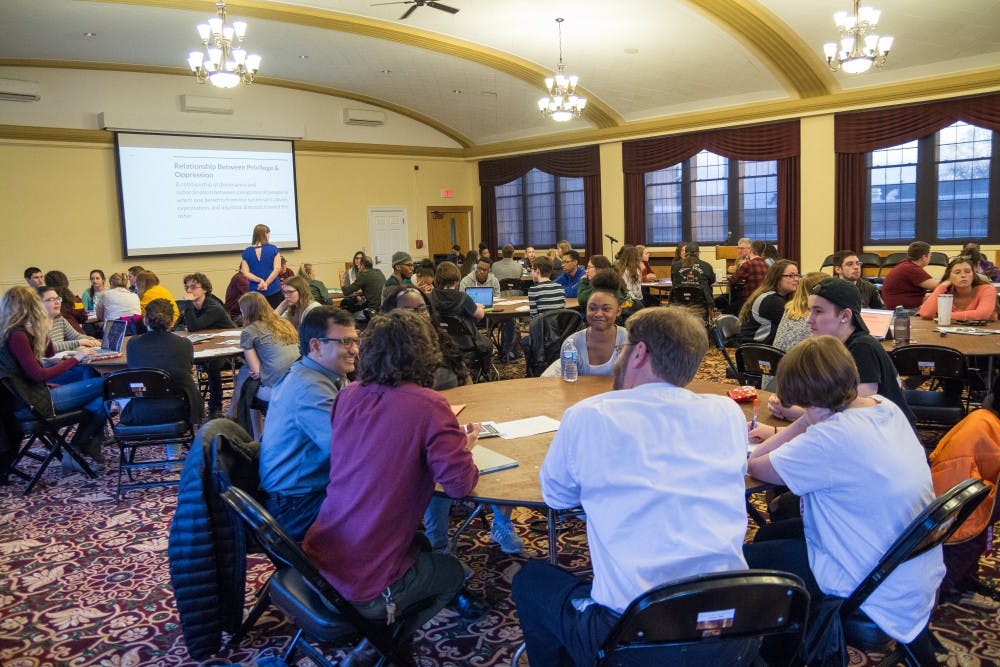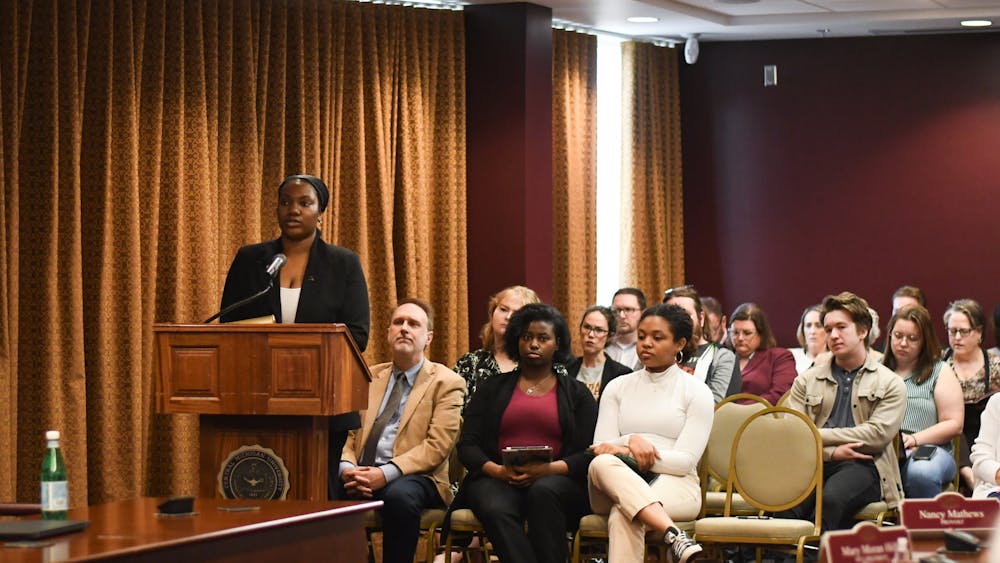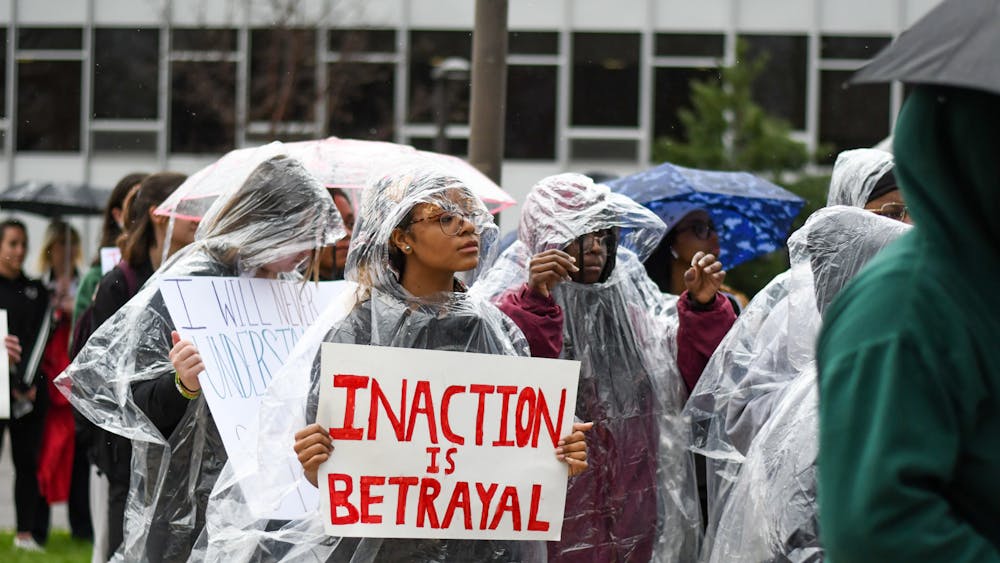Panel discusses prejudice through storytelling

Central Michigan University students, faculty and staff joined a panel to discuss prejudice at the Social Justice Through Storytelling event March 28 at Powers Ballroom.
The panel consisted of:
- Jabriel Johnson, CMU NAACP president
- Maham Khan, Muslim Students Association president
- Edward Hinck, Student Advocates for Prison Reform and the Incarcerated faculty adviser
- Joshua Kibez of Refugee Outreach Collective
- Mariah Ashley, CMU Organization of Women Leaders volunteer coordinator
Panelists introduced themselves and shared their experiences of being “othered.” Othering consists of treating someone differently from how one would treat anyone else and acting in an exclusionary way.
After the panel, attendees spoke at their tables about issues ranging from bias origins to tactful ways of addressing friends’ insensitive statements.
The event was hosted by CMU NAACP, CMU Refugee Outreach Collective, Muslim Students Association at CMU, Organization of Women Leaders and Student Advocates for Prison Reform and the Incarcerated.
'A walking melting pot'
Ashley said people always oddly stared at her as a child, but she never understood why.
Then one day someone asked her, “What are you?”
Ashley now has a response to that question: she is “a walking melting pot.”
“I am black, I am Latina, I am a woman, I am bisexual, I am a first generation college student, I’m a feminist and sometimes a goofball,” Ashley said. “I am human, I am here, I am enough, I am loved.”
Racism at CMU
Johnson said she has experienced more racism at CMU than at her predominantly white high school.
“People aren't explicitly racist,” Johnson said. “A lot of the time it's body language and the way people interact with you.”
Johnson said other people have created extra space between them, avoided eye contact and avoided her altogether. People have told her she doesn’t sound like a black person, act like one or listen to the music they expect black individuals to like.
Muslim Stereotypes
Khan emphasized the importance of seeking out truth.
“Stereotypes and misconceptions are always spread about and assumed to be true,” Khan said. “The truth itself is never pursued.”
Khan said people also assume Muslim students are all Arabic or that Muslim women are all oppressed.
“Let me tell you, the Muslim women in my life are some of the fiercest women I know,” Khan said. “That’s an absolute misconception.”
Khan has also had people assume she was from another country or that she is a terrorist.
“I can’t even kill the ladybugs that fill up my room,” Khan said. “So you tell me (if I’m a terrorist).”




